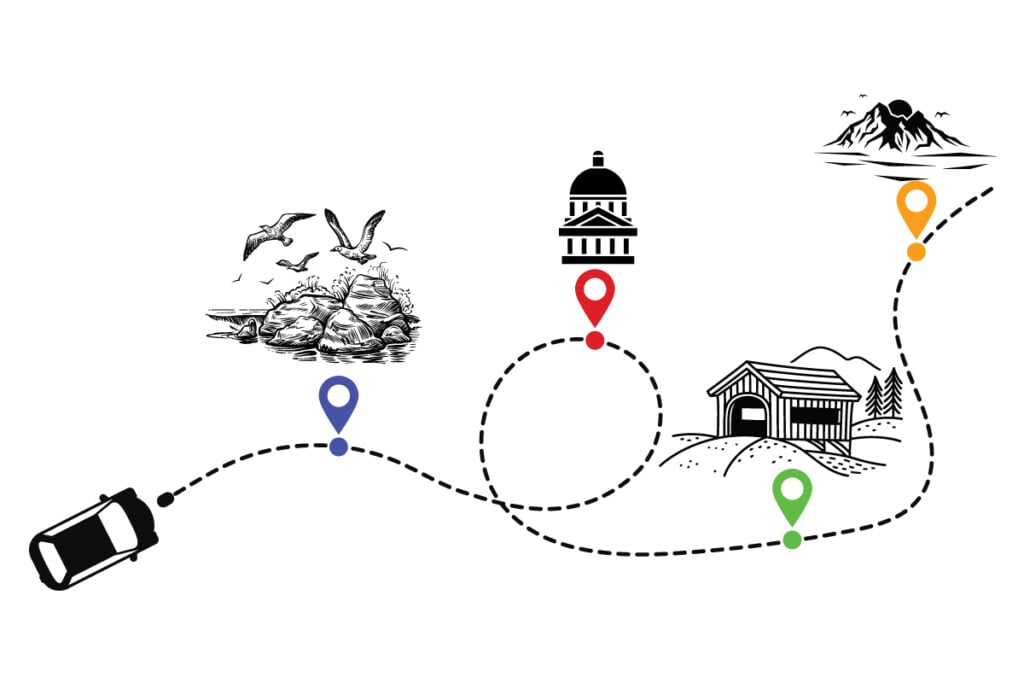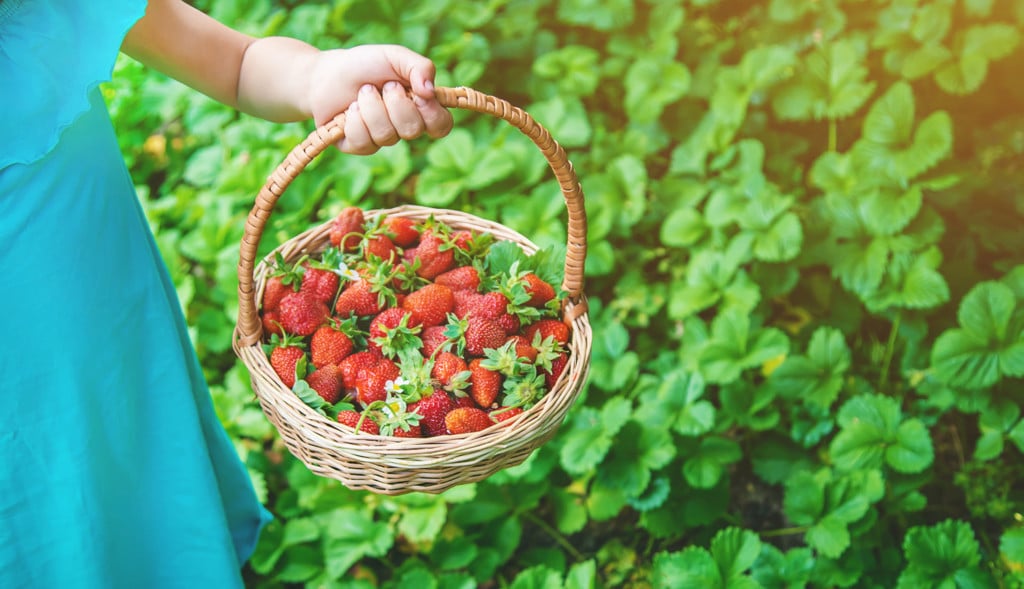Bite-Size: Consider Community-Supported Agriculture
Weekly updates about availability, recipes ideas and social connection from local food producers and sellers across New Hampshire

Over the past few weeks you may have become familiar with “The Curve,” the graph that illustrates why social distancing is so crucial to overwhelming hospitals. Stuck at home, many of us are facing another curve — the rate at which we learn home cooking skills.
While some restaurants are still able to serve takeout — and we hope you can frequent your local favorites from time to time — an all-takeout diet is not feasible. Until restaurants are able to reopen their dining rooms, we are mostly on our own.
So, here’s to making the most of this new reality. Let’s update our habits, connect to our local producers, and learn to cook healthy, delicious meals to remain fortified for the challenges we face ahead.
Bite-size is a weekly column that will provide updates and tips from our local New Hampshire food producers and chefs as we learn to source ingredients and cook our own meals on a more consistent basis. So, stop by for tips about home cooking in the Granite State.
March 31: Source Your Groceries From Local Farmstands
Join the farm-to-table movement with community-supported agriculture
With the governor’s stay-at-home directive in place until May 4, we’re going to be eating at home — a lot. So, now is a great time to get to know a farmer or two.
Much of the food at larger grocery stores travels thousands of miles to reach you and passes through many hands along the way. Our local farms are reliable sources for healthy, safe and local ingredients. Plus, any dollar you spend with a farm is quickly spent in the community at hardware stores, with local mechanics and on payroll for farm workers.
Due to COVID-19 our farmers face an unprecedented challenge as their restaurant customers slow or stop massive food orders while their dining rooms are closed. For a farm to stay in business it needs people to purchase fresh items at farm stands and reserve future harvests through CSA shares. Right now, there is an abundance of farm-fresh produce, meat and pantry items available throughout New Hampshire if you know where to look.
Find your local farmstand
There are a number of resources and directories that will point you to the closest farm or market. The New Hampshire Department of Agriculture publishes the annual New Hampshire Farm Stand Directory. Most farms maintain a social media account on Instagram or Facebook. Follow them to learn about current availability, pick-up and delivery options updates on safe social distancing policies.
Nonprofits across the state want to help you connect with your local farmer. For example, Seacoast Harvest has a comprehensive directory of farms that supports the seacoast community. Plus, they coordinate deliveries for citizens without transportation. See their COVID-19 specific resource here.
Tips for your farm visits:
- Meal plan for the week: Think ahead about what you need and order ingredients online or by phone to confirm availability and allow the farmer to prepare your order.
- Choose to go cashless. In this time of germ-avoidance, the best practice is to pay by card. If you need to pay with cash or check, you may want to confirm ahead of time that those payment options are available and accepted.
- “Go” before you go: Stay-at-home orders are designed to limit possible exposure events in public places. Try to avoid stopping at public restrooms or relying on the farm for a restroom.
- Follow social distancing requirements: Don’t let the change of scenery make you forget we’re still maintaining at least a six-foot distance from others, wash your hands with soap and water for at least 20 seconds as frequently as possible, covering coughs or sneezes (into the sleeve or elbow, not hands) and generally keeping things clean.
- Wear gloves: Whenever you are in public spaces wear gloves to avoid spreading or picking up germs.
- Bring sanitizer or wipes: When you leave the house, you open yourself up to exposure. If soap and water aren’t available, sanitizer will help clean your hands.
Reserve a CSA share to secure local food starting in June
CSA shares are a little different than a farmstand visit. A CSA share is typically a prepackaged box containing portions of the weekly harvest. You pay your farmer at the start of the season, and then, starting in June, you collect your box of freshly picked fruits and vegetables throughout the summer. Some farms offer CSA shares that include dairy, meat and pantry items like honey or maple syrup.
This model allows you to reserve a portion of what is planted now and harvested in the summer. They are offered in seasonal and year-round models depending on capacity, infrastructure and operations of each farm. As demand increases for local food, a CSA share will guarantee you’ll have a box filled with freshly harvested vegetables each week. Most shares sell out by mid-April, so now is the time to make your reservation.
A CSA share is a promise between us and our farmers — it allows us to contribute directly to our farmers’ financial security. In New Hampshire, we have an aging farming population at high-risk of contracting COVID-19. Many don’t have retirement accounts, savings reserves or stable income beyond farming so in this time of uncertainty, purchasing directly provides the most impactful type of support.
Some farms survive on the cash earned at weekly farmers markets. With all markets cancelled, a CSA share can replace some of that business and actually provide farmers with a guarantee of income as they fulfill orders over the summer. By purchasing a CSA share (ranging from about $300 to $700 for the season) you help your local farmer bridge the gap for the next eight weeks until market season begins in June. By the time your weekly box of vegetables is ready, you’ll hopefully have learned new skills to become a patron of local farms, a talented chef (or at least a better one than you were before), an expert in season vegetables and a pro at preservation.
Shelly Smith, program coordinator for Seacoast Eat Local, connects people to seacoast farms. She says that spring is the time when farmers can use a cash advance for the prep work a successful growing season requires. Before they are able to sell their products, they must purchase farm equipment, hire staff to plant seeds, order chicks and livestock and maintain the property.
Since you’ll be making weekly pickups invest in the farm closest to your home. If you know you won’t be able to pick up a box one week, invite a neighbor or friend to enjoy your share for the week. They can make the pickup using your name.
During these stay-at-home times, we have the ability to sharpen our home chef skills by making meals from what’s available. Flex your imagination now and by the time your CSA shares arrive you’ll be ready to make soups, salads, breads and meals using seasonally available ingredients.
Next up in Bite-size: Local meat and seafood










